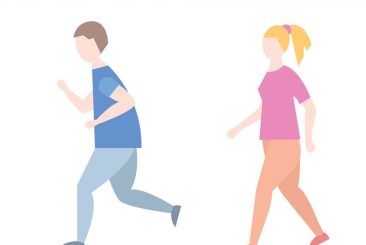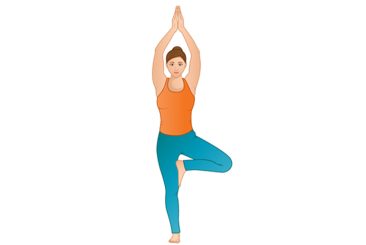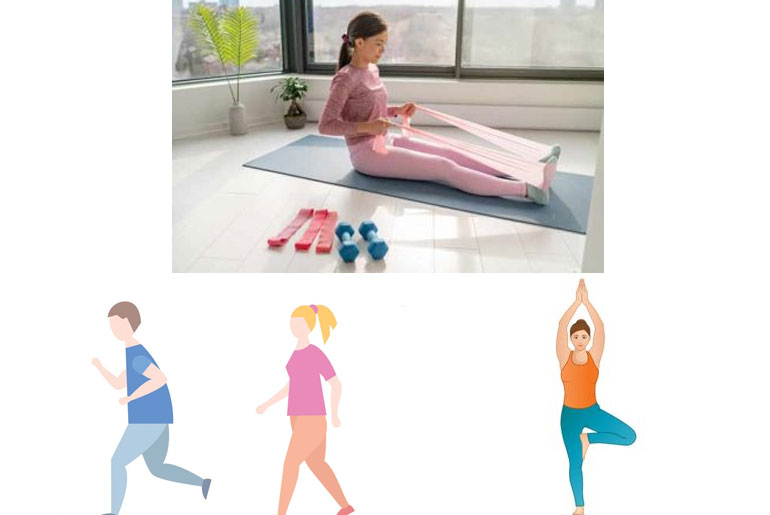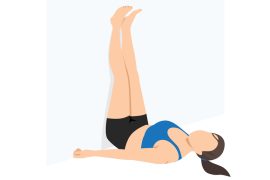Activities such as walking, jogging, yoga, and strength training can be effective treatments for depression. While low-intensity exercise is beneficial, the study highlights that more vigorous activity tends to yield even greater benefits.
Here’s a breakdown of key points:
Global Impact of Depression:
- Depression affects approximately 300 million people worldwide, making it a major global health concern.Major depressive disorder is recognized as the leading cause of disability globally, surpassing the impact of other significant issues like debt, divorce, and diabetes.
Benefits of Exercise for Depression:
- Low-intensity exercises like walking, jogging, yoga, and strength training are effective treatments for depression.
- The study suggests that more vigorous activity tends to yield even greater benefits in addressing depression.
Established Recommendations:
- Exercise is recommended as a core treatment for depression, alongside psychotherapy and medication.
- However, guidelines on how to prescribe exercise for treating depression remain unclear.
Comprehensive Review and Research Findings:
- A comprehensive review of 218 relevant trials involving 14,170 participants with depression was conducted.
- The analysis considered factors such as the type, intensity, and frequency of exercise prescribed.
Effectiveness of Different Exercise Modalities:
- Walking or jogging was found to be effective for both men and women.
- Strength training was particularly beneficial for younger individuals and women.
- Yoga was found to be more effective for men and older adults.
Tailoring Exercise Prescriptions:
- The study’s nuanced insights suggest the potential for tailoring exercise prescriptions based on demographic factors to maximize therapeutic benefits.
Challenges and Recommendations:
- Recognizing the challenges for individuals with depression, such as fatigue and low energy, the researchers emphasize the importance of health services providing adequate resources.
- The call is for making individualized and supervised exercise programs accessible to the entire population to address unique needs and preferences, thereby enhancing adherence to exercise regimens.
Walking and Jogging:

- Endorphin Release: These aerobic exercises stimulate the release of endorphins, neurotransmitters that act as natural mood lifters and pain relievers.
- Brain Plasticity: Regular walking or jogging may promote neuroplasticity, which is the brain’s ability to adapt and reorganize, potentially leading to positive changes in mood.
- Improved Sleep: Exercise can contribute to better sleep quality, and disrupted sleep is often associated with depressive symptoms.
Yoga:

- Mind-Body Connection: Yoga emphasizes the connection between the mind and body through postures, breathing exercises, and meditation. This can promote self-awareness and emotional regulation.
- Stress Reduction: The practice of yoga has been shown to reduce levels of the stress hormone cortisol, which is often elevated in individuals with depression.
- GABA Levels: Yoga may increase levels of gamma-aminobutyric acid (GABA), a neurotransmitter that has calming effects on the brain.
Strength Training:

- Neurotransmitter Release: Strength training can lead to the release of neurotransmitters like serotonin and dopamine, which play crucial roles in mood regulation.
- Increased Self-Esteem: Improvements in physical strength and appearance through strength training can boost self-esteem and body image, positively impacting mental well-being.
- Routine and Structure: Establishing a regular strength training routine can provide structure and a sense of purpose, which can be particularly beneficial for individuals dealing with depression.
Overall Benefits:
- Distraction from Negative Thoughts: Engaging in physical activity can serve as a distraction from negative thoughts and rumination, allowing individuals to focus on the present moment.
- Social Interaction: Group activities, such as walking groups or fitness classes, can provide opportunities for social interaction and support, reducing feelings of isolation.
- Empowerment: Regular exercise contributes to a sense of accomplishment and empowerment, as individuals set and achieve fitness goals.
It’s important to note that the effectiveness of these activities may vary from person to person, and it’s advisable for individuals with depression to consult with healthcare professionals. In many cases, a combination of therapeutic interventions, medication, and lifestyle changes, including regular exercise, may be recommended for comprehensive depression management. Always seek guidance from healthcare providers for personalized advice based on individual needs and circumstances.
Disclaimer:
The information contained in this article is for educational and informational purposes only and is not intended as a health advice. We would ask you to consult a qualified professional or medical expert to gain additional knowledge before you choose to consume any product or perform any exercise.







